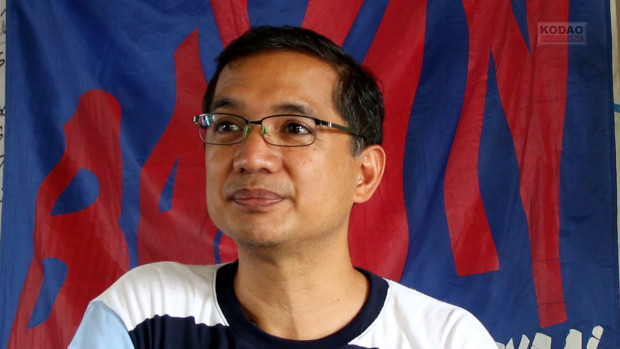By Rosario Brenda Gonzalez
Filmed in 2017, 1987: When the Day Comes is a timeless reminder of the fragility of authoritarian rule and the power of a people united in the path towards democracy. It depicts the downfall of the military regime of South Korean President Chun Doo-hwan, with his government’s cover-up of a death from torture of student activist Park Jong-chul as the spark that ignited massive opposition and people’s protest.
This Jang Jong-hwan-directed movie based on real events features acclaimed actors Kim Yoon-seok, Ha Jung-woo, Yoo Hae-jin and Kim Tae-ri, a relatively new actress admired for challenging roles (The Handmaiden, Mr. Sunshine and Little Forest). It recreates the events in the first semester of 1987, a historic period in South Korea’s tumultuous struggle against military dictatorships.
The process of exposing Park’s death from torture performed by policemen had unsurprisingly been risky, yet most of the people involved in it did not think twice of doing the right thing. Park was then a 23-year-old student leader at Seoul National University’s Linguistics Department who was repeatedly asked by his tormentors for the whereabouts of another student activist. He stood his ground of not betraying his fellow student leader.
Commissioner Park Cheo-won portrayed by Kim Yoon-seok ordered his subordinates to facilitate the cremation of Park’s body before an autopsy has been undertaken and to report the cause of death as a heart attack. But this was thwarted by the refusal of Prosecutor Choi Hwan (Ha Jung-woo) to approve the cremation insisting that standard operating procedures (SOPs) should be followed. From then on, the movie moved at a fast pace, with several characters coming in, similar to a collective working on a most noble mission.
Commissioner Park and his minions faced a formidable opposition of ordinary citizens – all just thinking of doing their job – yet took small but steady steps toward unveiling an injustice that triggered a nationwide outrage. There is the prosecutor passing on vital information to a journalist who immediately wrote about Park’s real cause of death, which is asphyxiation. The doctor called upon by authorities to first look at Park’s dead body simply stated what he saw, while Park’s uncle, who witnessed the autopsy, boldly voiced out that foul play was certainly involved in his nephew’s death.
Yoo Hae-jin portrayed a prison guard who smuggled significant documents to political activists but was eventually arrested by government operatives. His niece Yeon-hee, played by Kim Tae-ri, is the only one among the major characters who is not based on a real person. She represents the typical apathetic student who, because of personally witnessing and experiencing serious misdeeds and injustice, eventually realizes the need to be part of a growing protest movement.
Yeon-hee was once thrown accidentally into a violent dispersal of student rallyists, where she was saved from being hurt by Lee Han-yeol, a student activist. With her uncle being tortured and under arrest, Yeon-hee decided to bring the vital documents to Catholic priests, who afterwards gave a public pronouncement exposing the torture and death of Park Jong-chul while being interrogated by the police.
Yeon-hee read in a newspaper that as student protests erupted, the amiable and good-looking Lee Han-yeol was killed by government troops. She is then seen joining an act of people power as demonstrators in a fiery display of courage and bravery massed up, demanding urgent democratic reforms. These series of events resulted in the government’s giving in to the people’s demands for elections and strengthening of civil rights.
1987: When the Day Comes pays tribute to the men and women who sacrificed their lives to end a military dictatorship. It tells of their ordinary lives and extraordinary deeds to bring a better future for their country. #
= = = = = = =
Rosario Brenda Gonzalez is a long-time development worker who discovered South Korean films and television series during the pandemic. She was encouraged to review 18 South Korean movies, 2 South Korean television series, and 1 Japanese television series upon realizing that many of these tackled social issues in an informative and entertaining manner.
A BA Journalism graduate of UP Diliman, Ms. Gonzalez has been a project evaluator and development management trainer for more than three decades. Prior to that, she was a human rights and church worker.















